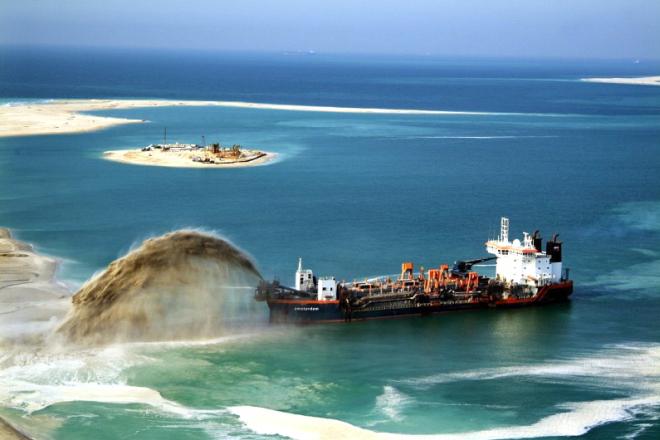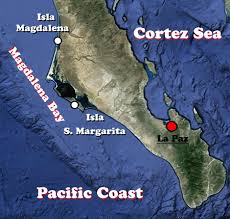
How do you ruin a marine paradise? According to The
Interamerican Association for Environmental Defense (AIDA) it’s smple: start
dredging for phosphate and dumping the residue back in the ocean.
AIDA has today spoken out against the Don Diego phosphate
mining project slated for the Gulf of Ulloa, in Comondú, stating that there was
no guarantee that the project will not harm the marine ecosystem.
The proposed Don Diego dredging area is located in waters 70-90
m deep and 40 km offshore. The area of highest phosphate is located in the Mexican
Exclusive Economic Zone and is being proposed by Odyssey Marine Exploration,
Inc. (Nasdaq:OMEX).
Dr. Richard Newell, a leading environmental consultant, was
involved in the provision of independent scientific advice for this project. He
possesses extensive experience with studies on the environmental impact and
management of dredging by Trailer Suction Hopper Dredgers (TSHD) for the marine
aggregates sector in the UK. Between 2002 and 2011, he was the marine science
coordinator for a $50 million research program funded through the UK Government
Department for Environment, Food and Rural Affairs (Defra) known as the
Aggregate Levy Sustainability Fund (ALSF).
According to Newell, "The knowledge we derived from the
results of work funded through the ALSF has been brought to bear on the 'Don
Diego' TSHD project, and leading independent expertise from the UK dredging
industry has played a central role in the assessment of potential impacts. I am
satisfied that this work and the interpretation of the data meets the high
international standards that are expected for a project of this
significance."
However, AIDA take a different view: "The analysis shows
that the Don Diego Project, the first of its kind in the region, could cause
serious environmental damage," said Haydee Rodriguez, AIDA attorney.
It is believed that the project could generate irreversible
damage to areas which are ecologically vulnerable and rich in biodiversity
including Magdalena Bay, a mangrove ecosystem home to endangered marine species
and other aquatic nursery areas vital for the fishing industry, and famous for the Gray whales which visit there each year to calve starting a unique tourist experience for getting close to and even touching these magnificent animals.

"The project involves a mining process that could greatly alter the marine environment: large ships dredge the seabed and extract sand for
phosphate, but in doing so will also remove living organisms. Furthermore, sediments
after being processed will be returned to the ocean exposing toxic elements like
uranium, "said a AIDA press release.
Gray whales are the only balleen whale that extract most of their food from mud sediments on the ocean floor therefore there is some concern that dredging and removal of these food items could impact adversely on these economically important mammals to the Los Cabos tourist market.
The AIDA press release also stated that "The Mexican State
has national and international obligations to implement the Precautionary
Principle. Thus, should refuse permission for the project to ensure that it
will not generate serious and irreversible environmental damage. By authorizing the project, the Mexican State may violate
international treaties that are required to meet the protection of marine
environments and vulnerable species ".
Find out more about AIDA here